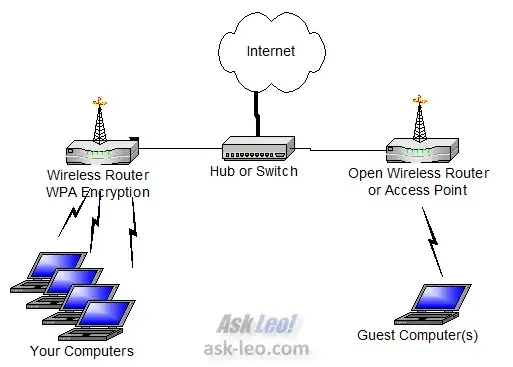For my home I want to be a nice neighbor actually I have let my wifi open for the past maybe 6 or 7 years. I know that WEP, etc can be cracked within a couple of minutes but my neighbors son who works in IT told his mom and she told me that I am doing bad things and you know the story..
Do you think it's okay to leave your wifi open to the public? I live in a suburb with a tiny street and about 8 houses in reach of my wifi. I have a 16k DSL line so if some one joins me for a couple hours I would probably not notice.
I would love your thoughts on whether I should encrypt my wifi or not.
